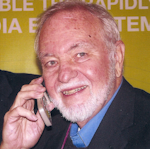It seems like everyone at some point in their lives wants to be a writer. You have things to say and you need a way to say them to a large audience. That’s why blog writers are so abundant today. And some of you also have probably thought that you should write a book. Many of you have at least one book in you, so why not dream of writing it. I have written 23 books so I can give you some tips on how to go about this if you are interested. It is not an easy thing to do and you won’t automatically become rich and famous. Nevertheless there are still some attractive payoffs.
If you’re still interested, here are some pointers.
1. Write what you know. You are probably college educated and your OJT experience has given you some unique knowledge. You are probably an expert in your field so use that knowledge to educate others. Besides, writing what you know makes the writing faster and easier since you won’t have to do as much research. It will also sound authoritative. What you will also discover is that in explaining the topic to others you may have to learn your topic in more detail and provide some remedial material to any newcomers. You will actually become even more of an expert.
2. Choose a “hot” topic. Hopefully, your subject is not only what you know it also it is a current topic of interest. You will not be able to interest a publisher in producing your book unless there is a new or existing audience. A publisher usually needs to sell several thousand books to break even on a book so try to zero in on some subject where limited knowledge exists but is getting lots of attention.
3. Make sure there is an audience. Do some market research to determine if there are enough people out there who might buy your book. The market does not have to be in the millions to land a book deal, but there should be a sufficient number of potential buyers to make the book profitable for you and the publisher.
4. Write a book proposal. A good way to start is to sketch out your book. Your proposal should include a summary paragraph of the content, a definition of your intended audience, a statement of the need and potential, and a tentative chapter title outline. This is what a potential publisher wants to see. Many will also want to see the preface and a sample chapter just to evaluate your writing ability and style. This whole exercise will give you a proposal to solicit publishers but will also firm up your ideas.
5. Shoot for a practical rather than purely theoretical book. Engineers are looking for current information and knowledge they can use now to solve problems. Try to provide that. It is ok to include relevant theory but keep it short and simple. Write material that someone can apply immediately. Give examples and worked out solutions. If you are not a professor, ignore the idea of a college text. Getting a text adopted for a course is a winning outcome but rare. Besides, for a textbook, most publishers won’t even talk to you unless you have a PhD or use professor as a title.
6. Get a book deal. Send your proposal along with a cover letter to potential publishers. There are many, especially small ones. I can’t list them all here but I have had good luck with Elsevier/Newnes, McGraw Hill, and Prentice Hall/Pearson. Check for other publishers online or at conferences. Some publishers won’t consider anything directly from an author so you will need an agent. I do not recommend that route. An agent will try to hook you up with a publisher but will also eventually take 15% on your earnings. For a first book I suggest you negotiate your own contract. Royalty rates are all over the place usually from 5 to 15% of the net book price. Cash advances are an artifact of the past unless you get unusually lucky. NOTE: Forget self publishing. It is easy to do these days via Amazon, Book Baby and others and you get to keep more of the money. But self publish prices are too low and you must do your own marketing. Not a good way to go unless you want to do the promoting and selling as well as the writing.
7. Grind it out. Writing is hard work. It is heavily mental and a real time consumer. I view this work as something you just have to get done a bit at a time putting in regular sessions on a daily basis. It is a great feeling to have written a book but the actual doing of it is tedious. For the average technical book, if you work at it regularly, it should take six months to a year. For a comprehensive book like a college text, it will take longer.
8. Enjoy the payoff. You will not get rich writing your book but you may get your 15 minutes of fame with your company, peers, or family. It is fun to show off your book to friends or boss. And you will eventually get a royalty check from your publisher. The extra income is great for a vacation or some other major purchase. It is also a very satisfying experience. Sorry, but it usually will not be enough to buy the Corvette, Porsche, Tesla or sailboat.
9. Have reasonable expectations. If your book sales let the publisher break even, that is better than what most books do. Most publishers need to sell 2000 to 5000 books to be profitable. Selling 10,000 is probably a best seller for an engineering book. Finally, realize that the life of your book is only a few years. It either goes out of print for lack of sales or becomes technologically dated. You are lucky if a publisher asks you to do a second edition.
10. Consider the alternatives. If the idea of writing a book is just too daunting, think about doing an article or column. Electronic Design is constantly looking for good technical articles. Send your article ideas to one of the tech editors (Bill Wong or Don Tuite) or editorial director Nancy Friedrich. If you think you may want to write a column multiple times per year and become a Contributing Technical Editor, get in touch with Roger Engelke. No need to write the article first but that is ok if you do.
You too can be a “famous” author. Give it a shot.


